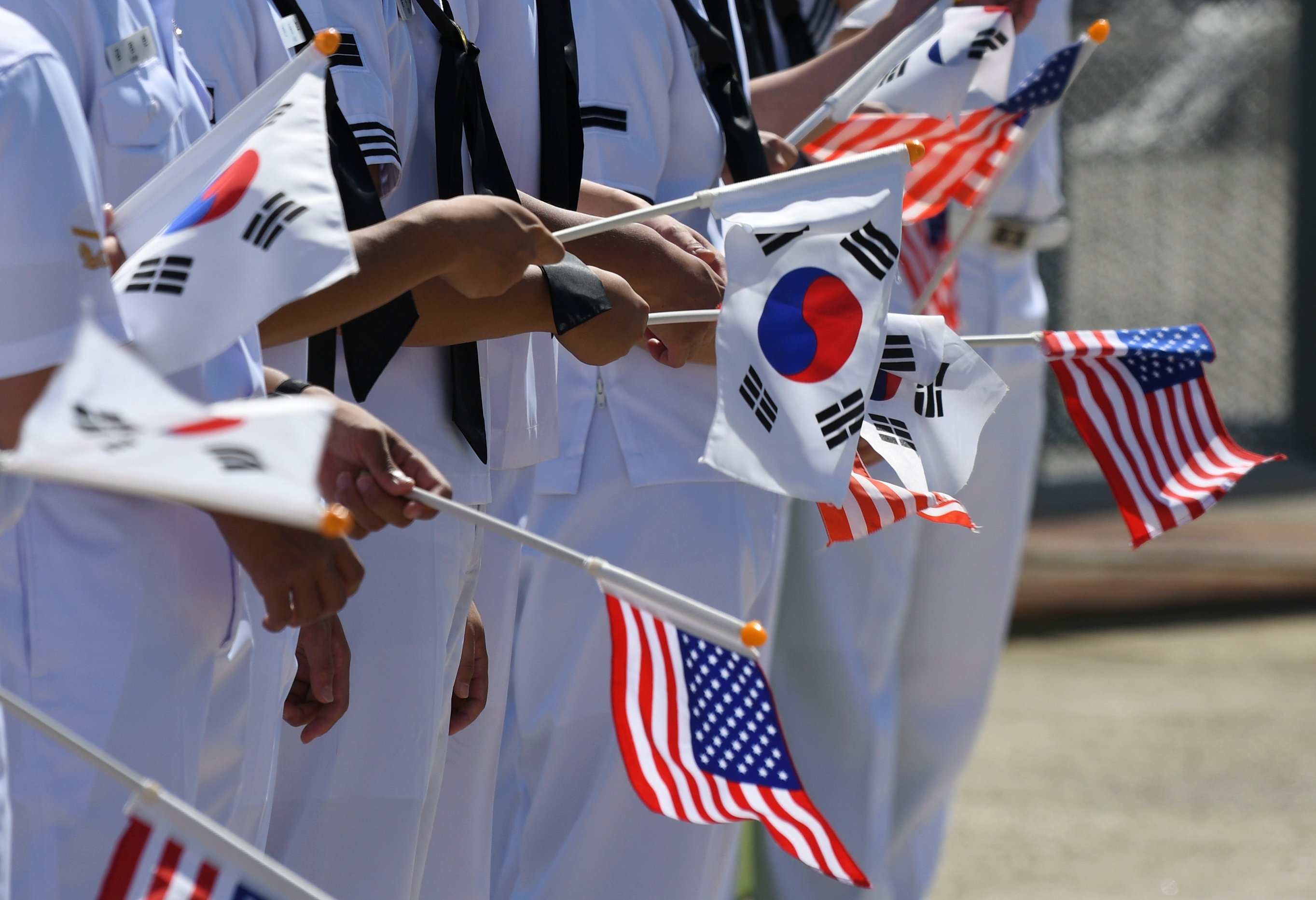
A clear statement from President Joe Biden that the United States will respond to North Korean actions involving nuclear weapons would help reassure South Koreans of Washington’s commitment to their defense if attacked, a leading security expert said Thursday.
South Koreans have a high level of anxiety about its neighbor to the north, even as the mutual security alliance between Washington and Seoul enters its 70th year, Mi Sue Terry, director of the Asia Program at the Woodrow Wilson Center, said. Pyongyang continues testing advanced missiles and is said to be preparing for a new nuclear weapons test.
A statement from Biden about responding to North Korea would shore up the alliance going forward. President Yoon Suk Yeol is currently in Washington for several days of talks.
Yoon would not be looking at NATO-like nuclear sharing arrangement to come out of the statement, Terry said. Rather it would serve as a means to build Seoul’s missile defense capabilities similar to the introduction of the Theater High-Altitude Defense [THAAD] several years ago.
China reacted angrily to the deployment, imposing trade embargoes and threatening military action against South Korea, calling THAAD an offensive weapon. At the time, Beijing was Seoul’s largest trading partner. The panel noted the United States has replaced China in South Korea’s trade rankings.
Army Gen. Paul Lacamera, senior commander in Korea, warned Pyongyang is publicly justifying its using tactical weapons first if it believes “the non-nuclear state is ‘colluding with nuclear states,” during a Tuesday House Armed Services Committee hearing. The non-nuclear state reference applies to Seoul and Tokyo.
Terry, speaking at a Center for Strategic and International Studies online event, noted the North’s first test of a solid-fuel intercontinental ballistic missile late last week raised the threat level Pyongyang poses globally but attracted relatively little notice.
“We have a big issue here” because the missile can be hidden and rapidly deployed, she said. North Korea is “continually advancing its capabilities.”
Lacamera, in written testimony, said this was in keeping with Kim Jong-un’s commitment to having a “quick nuclear counterstrike” in his arsenal to preserve the regime.
Victor Cha, CSIS’ senior vices president for Asia, said Yoon’s policy toward Pyongyang, Beijing and Tokyo “is almost completely in alignment of views” with the Biden administration’s.
Relations between Japan and South Korea have been tense for decades rooted in Tokyo’s treatment of Korea as a colony and actions on the peninsula in World War II. Cha added that it would be important for Biden to acknowledge Yoon’s work in repairing relations with Japan.
Relations had soured so much in a 2019 trade dispute the two stop sharing security intelligence over North Korea and China.
Panelists agreed Korean support for the alliance with Washington remains high, but Yoon, a conservative elected in 2022, is running at a 40 percent approval rating in political polling.
In other foreign policy matters, Yoon voiced support for Ukraine’s resistance to the 2022 Russian invasion and is considering sending military aid to Kyiv. Korea is already sending humanitarian and economic assistance to Ukraine. He has called China’s bullying of Taiwan “a global issue.”
Cha said Yoon recognizes “changes in the external environment.”
Scott Snyder, director of the U.S.-Korea Policy program at the Council for Foreign Relations, added marking the anniversary is a good time to re-frame the alliance. Issues to be discussed include economic and trade arising from the COVID-19 pandemic that affect manufacturing and supply chain. He added it’s important Seoul believing it is “receiving a fair shake.”
This re-framing could be “powered by chips, batteries, clean technology,” Snyder said.





